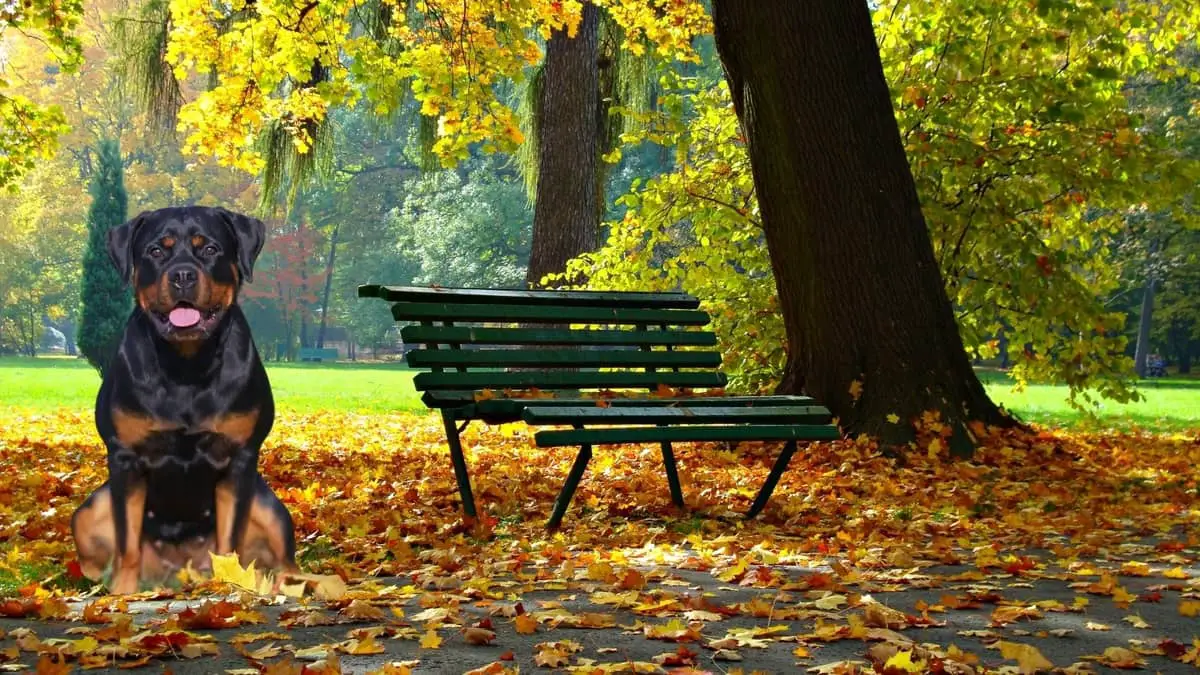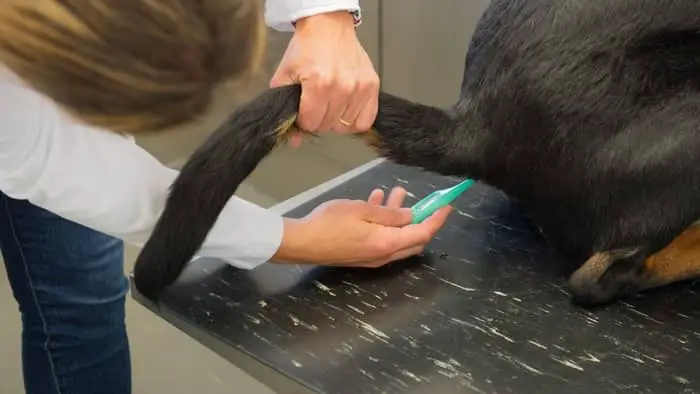Last Updated on October 30, 2021 by
Why do dogs rub their bum on the floor? Are you a dog owner, and you are wondering why your dog keeps dragging their butt on the floor?
It may seem funny or strange when your dog starts to drag their butts across the yard or carpet. But in reality, scooting is a dog’s way of trying to remove something wrong back there. That could be a pain, an itch, irritation, or any other problem.
Most dogs with this common behavior often indicate an anal sac issue. Anal sacs can become clogged or injured for a variety of reasons that can lead to scooting. To ensure scooting is not a severe problem, we recommend visiting your vet as early as possible.
Educating yourself on the causes of these scooting problems will help lead to more direct solutions.
Table of Contents
Why Do Dogs Rub Their Bum On The Floor?
As previously mentioned, dog scoots their bums on the floor or carpet if they are experiencing discomfort. Scooting is commonly caused by anal gland problems, and the actin of scooting is a dog’s attempt to relieve soreness and find comfort. But besides this, why do dogs drag their butt on the floor?
Anal Sac Issues
This is by far the most common reason why dogs rub their bum on the floor. The anal sacs are two small scent glands located around the anus at the 4 and 8 o’clock points. These glands secrete a unique aroma that identifies each dog. This is why dogs sniff each other’s hinterlands when greeting!
If these anal sacs are too full, the dog becomes uncomfortable, and the anal sacs can be painful. To relieve the pressure and express the anal sacs, dogs may drag or rub their rear along the floor.
If you notice a discolored trail or smell an excessively smelly fog, it is because of the full anal sacs. If your dog is scooting several times within a couple of days, ask your vet to check under the tail.
It can be hard to differentiate between overly full anal sacs and more severe infection that includes tumors. To check what is going on, lift your dog’s tail and check for any pus, swelling, bleeding, or bruising.
Anal sac infections are not only insanely painful, but they can grow worse in just a few hours. Early treatment, a round of antibiotics, and anti-inflammatories may be a good treatment. If it takes too long to detect, your dog might require surgery to remove the tumors.
Learn more about: Do You Know What Is A Dewclaw? – A Deeper Study
Seek Treatment Of Anal Sacs Early
Anal sac tumors can be fatal! Any protrusion, swelling, or distortion of the anal area should be reported to your vet. If the tumor is concentrated around the anal sac, surgical removal may be the solution. If diagnosed late, it may lead to cancer that spreads to adjacent tissues or throughout the body. Anytime you are in doubt, have your vet check it out!
If you notice any of these signs, take your dog to your vet right away. Most dog insurance policies do not cover anal sac problems. If the problem is related to an injury or illness, the treatment and exam costs can be covered.
Itchy Allergies
Skin allergies are the second leading cause of scooting. Seasonal allergies, insect bite reactions, and food sensitivities can also make your dog drag their bum. Your vet will be able to diagnose the problem and treat the allergy and its cause.
A high dose of omega 3 fatty acids like fish oil, EPA, or DHA is recommended to help dogs suffering from skin allergies.
Skin Infections
Besides the infected anal sacs, fungal and bacterial yeast skin infections can cause itching and burn in the butt area. Why do female dogs drag their bottoms on the ground? Female dogs may also develop a yeast infection in the privates that mimic anal sac problems.
If your dog has a skin infection that involves the abdomen and you notice it is scooting, make sure your vet evaluates its skin for any infections and its abdomen. UTIs and Bladder problems can cause scooting and cost a lot of money to deal with the issue. Getting your pet insurance is beneficial in dealing with such health issues.
Problematic Parasites
One of the biggest causes of butt dragging is tapeworm infection!
These filthy flatworms cause deep itching around the anus. To know it’s a tapeworm, check for their proglottids. These are tiny egg-carrying segments that look like rice and are shed in the stool.
If you notice that your dog has a persistent or recurrent tail scooting, treat it for intestinal parasites. Giardia is another parasite that can be spotted in the feces. These microscopic organisms can also cause anal region discomfort, but your vet can immediately treat it.
General Pain
If your dog is experiencing pain in the lower back and hips, it can cause it to scoot. If your dog keeps licking its rear, but the anal sacs look normal, investigate if it is a pain disturbing them.
Perianal Fistula
A Perianal Fistula is a rare cause of scooting in dogs that are poorly understood. This condition mainly affects the German Shepherds but can occur in any breed. Perianal Fistula creates draining tracts that respond poorly to traditional treatments. If you notice your German Shepherd is licking its tail or scooting, seek medical help immediately.
Excessive Grooming
If you groom your dog frequently, you may experience clipper burns and irritations from perfumes, sprays, or grooming products that get under their tail and around the bottom.
Check your dog for tiny razor burn or tiny nicks if your dog is scooting after grooming. If it’s itching all over the body, it could be a result of a grooming product. Ask your groomer to switch products and use sensitive skin products or organic bath products that are favorable to your dog’s skin.
Take-Home
You are now wiser and know why dogs drag their butts. If you spot it happening to one of your dogs or your friend’s dogs, it is easy to look for the problem because you know where to start.
In your dog’s life, always consult their vet if you are unsure of anything or if you notice a funny behavior with your dog. You are better informed than in the dark!




